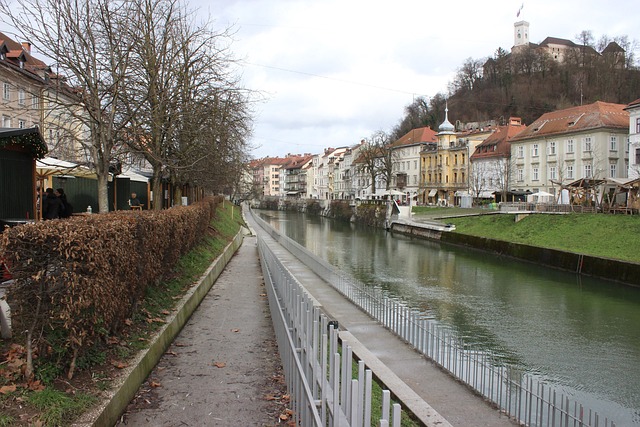Karachi, with its dense population and rapid urbanization, confronts significant waste management challenges. Despite these hurdles, the city has made substantial progress through innovative initiatives like modern recycling, dedicated landfill sites, public awareness campaigns, and private sector involvement in waste-to-energy projects. Jinnah Avenue, a bustling hub, leads local efforts with community-driven programs, cultivating collective responsibility and positioning Karachi as an environmental stewardship model. Smart technology optimizes collection routes and promotes a circular economy, aiming to transform Karachi into a sustainable urban center for waste disposal, fostering a cleaner, healthier environment.
In Karachi, waste management poses significant challenges due to rapid urbanization. The bustling city, with its diverse neighborhoods, requires efficient strategies for sustainable waste disposal. This article explores these intricacies, focusing on Jinnah Avenue as a case study of local efforts and community engagement in waste management initiatives. We delve into innovative solutions tailored for urban areas, emphasizing the importance of collaborative action to mitigate environmental impact and foster a cleaner, healthier Karachi.
- Understanding Waste Management in Karachi: Challenges and Current Initiatives
- Jinnah Avenue: A Focus on Local Efforts and Community Engagement
- Innovative Solutions for Sustainable Waste Disposal in Urban Areas
Understanding Waste Management in Karachi: Challenges and Current Initiatives

Karachi, as a bustling metropolis, faces unique challenges when it comes to waste management due to its dense population and rapid urbanisation. The city generates a significant amount of waste daily, including municipal solid waste, industrial refuse, and hazardous materials. Effective waste management is crucial for maintaining a clean and healthy environment, preserving natural resources, and mitigating potential health risks for residents.
Despite these challenges, Karachi has made notable strides in improving its waste management systems. The city administration has launched several initiatives to enhance collection and disposal methods. These include implementing modern recycling techniques, establishing dedicated landfill sites, and promoting public awareness campaigns about responsible waste segregation. Moreover, private sector involvement in waste management through innovative solutions like waste-to-energy projects is also gaining traction. Such efforts are vital steps towards creating a more sustainable and environmentally friendly Karachi.
Jinnah Avenue: A Focus on Local Efforts and Community Engagement

Jinnah Avenue, a bustling thoroughfare in the heart of Karachi, has become a focal point for local initiatives in waste management. The vibrant city, known for its dynamic culture and diverse populations, is making strides towards a cleaner and more sustainable future. Community engagement plays a pivotal role in these efforts, with residents actively participating in various programs aimed at reducing waste and promoting recycling.
Local organizations and volunteers have been instrumental in organizing clean-up drives, educational workshops, and awareness campaigns along Jinnah Avenue. These initiatives not only address the immediate environmental concerns but also foster a sense of collective responsibility. By involving the community, these efforts create a sustainable impact, ensuring that Karachi continues to evolve as a city that values both progress and environmental stewardship.
Innovative Solutions for Sustainable Waste Disposal in Urban Areas

In Karachi, the bustling metropolis that is Jinnah Avenue’s neighborhood, innovative solutions for sustainable waste disposal are gaining traction as the city grapples with mounting trash challenges. Traditional methods are no longer sufficient to manage the vast quantities of waste generated daily by this vibrant urban area. Eco-friendly alternatives like recycling programs and composting initiatives are being explored as game-changers in the waste management landscape. These approaches not only reduce the environmental impact but also foster a circular economy, where waste is minimized and resources are reused.
The city’s waste management strategy can benefit from implementing smart technology, such as sensors to optimize collection routes and apps for citizens to participate in recycling. These innovative measures can transform Karachi into a model urban center for sustainable waste disposal, ensuring a cleaner and healthier environment for its folks while promoting a greener future.
In conclusion, addressing waste management near Jinnah Avenue in Karachi requires a multifaceted approach. By understanding the city’s unique challenges and leveraging current initiatives, local efforts and community engagement can significantly enhance sustainable waste disposal practices. Innovative solutions, tailored to the urban landscape of Karachi, are essential for creating a cleaner, healthier environment. These efforts not only benefit the immediate community but also set a precedent for effective waste management across the metropolis, ensuring a brighter future for all its folks.

Leave a Reply
You must be logged in to post a comment.